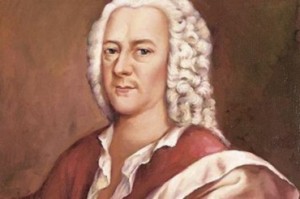[contextly_auto_sidebar]
And now my final post about changing the conservatory curriculum. In the post I did last, I talked about music history, or rather classical music history. And how — while we should find a way to teach the history of other musics — even when we teach classical history we leave a lot out. Namely, the real stuff of music in the past. How it lived, how it functioned, how listened, how they listened.
And — very important — how musicians, including the great composers, made their living.
Working for the man
 If I ask my students — in my Juilliard classes — how composers in past centuries made money, the usual answer is that these composers had patrons.
If I ask my students — in my Juilliard classes — how composers in past centuries made money, the usual answer is that these composers had patrons.
But that’s not what history shows. Take a famous example, Haydn, who (as of course most readers of this blog will know) for many years wrote music for Prince Esterhazy. But the prince wasn’t his patron. A patron would be someone who supports a composer, and leaves the composer free to write whatever he or she wants.
Prince Esterhazy wasn’t that. He was Haydn’s boss, his employer. Haydn’s job was to write symphonies and operas, designed to entertain guests at the Prince’s summer palace. TO judge from the delight of the music — how varied, deft, and fun it is — Haydn liked this work. But if he hadn’t been good at it, if the Prince’s guests didn’t like his music, he would have been out of a job.
Likewise Bach. The church in Leipzig, where he so famously worked, wasn’t his patron. He had a job there. He had to write (or otherwise provide) cantatas every Sunday, and a passion oratorio at Easter. And also teach children in the church school, and provide music for weddings and funerals. A demanding job.
Smorgasbord
How else did composers make a living? They didn’t all have fulltime jobs.
You can read the answer, in great detail, in a book by E. M Scherer (who taught and lectured at prestigious political science institutes at Princeton and Harvard), called Quarter Notes and Bank Notes: The Economics of Music Composition in the Eighteenth and Nineteenth Centuries.
What Scherer shows is that composers made their living in any way they could — with patrons, sometimes, but by holding jobs, by teaching, by performing, and with freelance work, much of it entrepreneurial. Beethoven premiered his Ninth Symphony at two back to back concerts he produced and paid for. (And then threw a fit in his conversation books when he lost money.)
Mozart was only one of many composers who produced “academies,” concerts for which first a program would be announced, and then people would subscribe, or in other words pay money in advance to attend. Only then would the composer rent the hall and hire the musicians. Scherer tells one story about an Mozart academy only one person subscribed to, which of course meant the concert never happened.
Success stories
Which doesn’t mean that all composers failed as entrepreneurs. Handel was greatly successful, and Berlioz — thanks so a last-minute surge in ticket sales — made money from a concert (featuring 1000 musicians) at which he premiered the Symphonie Fantastique.
Rossini, coming to Naples for what would prove to be a great career turning point, discovered that the opera house was supported by a gambling casino in the same building. A very profitable one! So he invested in it. Smart, enterprising man. (This isn’t in Scherer; I got it from a book by Phillip Eisenbeiss, Bel Canto Bully: The Life and Times of the Legendary Opera Impresario Domenico Barbaja.)
And then there’s this, from Scherer (pp. 172–172), a tale that ought to blow away all thoughts of classical music sanctity in past centuries:
 In 1722, a year after he was appointed cantor of five Hamburg churches, Te!emann [look at that canny face!] came.into conflict with the firm enjoying a privilege as official printer to the city of Hamburg. It was customary for the cantor to write passion music for Lent services and for the congregation to participate actively in the service. This required printing numerous copies of the passion text — a right claimed by the printer. Contrary to prior custom, Telemann insisted that he be compensated by the printer for his work in integrating text with music, a demand naturally enough resisted by the printer. In iterations of this dispute before the Hamburg city council, Telemann’s right to receive compensation was repeatedly affirmed, first with a mandate that the printer supply Telemann with 300 free copies (which he could sell to churchgoers) and later with a monetary honorarium set at 100 florins annually.
In 1722, a year after he was appointed cantor of five Hamburg churches, Te!emann [look at that canny face!] came.into conflict with the firm enjoying a privilege as official printer to the city of Hamburg. It was customary for the cantor to write passion music for Lent services and for the congregation to participate actively in the service. This required printing numerous copies of the passion text — a right claimed by the printer. Contrary to prior custom, Telemann insisted that he be compensated by the printer for his work in integrating text with music, a demand naturally enough resisted by the printer. In iterations of this dispute before the Hamburg city council, Telemann’s right to receive compensation was repeatedly affirmed, first with a mandate that the printer supply Telemann with 300 free copies (which he could sell to churchgoers) and later with a monetary honorarium set at 100 florins annually.
This isn’t our traditional view of how classical music functioned.
But that traditional view is wrong. If we change it, bring it into sync with real classical music history, we free classical music from its burden of sanctity.
And we free space in our students’ minds for the idea that they can make a living now, entrepreneurially, or in any other way that works.
If Mozart did it…
My previous posts on curriculum change:
“Changing the curriculum” (why we have to do it)
“The highest road” (about entrepreneurship, and why the tension some people feel between teaching entrepreneurship and teaching music doesn’t need to be there)
“Music theory for a new century” (about why a literate musician today needs to analyze many kinds of music)
“Flights of crazy fancy” (about how we teach classical music history — pretty much ignoring what music really was like in the past, how it was performed and heard, and how loose and wild it could be)

Telemann, great businessman, also published “Der Getreure Musik-Meister” ( The Faithful Music Master) , a fortnightly collection of compositions for many different instruments and combinations- vocal, lute, recorders, bassoon, chamber music, etc. He had a subscription list of likely amateur and serious players, etc. In the case of multi-movement works, he would only include one movement in each issue…so the expectation and interest was maintained. Not unlike how Dickens’ and others’ novels were issued
Jesse Read
Professor Emeritus, former Director, School of Music, University of British Columbia, Vancouver, BC Canada
Thank you for such an interesting article (and the funny “canny face” comment). I often recieve sneers from my colleagues when I talk about my gigs. It’s good to know Bach also played at weddings.
Greg
Other notable examples include Charles Ives (insurance), Rimsky Korsakov (naval officer), Lou Harrison (gardening/landscaping), Phillip Glass (taxi driving, home renovation, and moving company), Virgil Thomson (critic and reviewer), William Schuman (arts administrator), and last but not least Frederick the Great (King of Prussia when not composing).